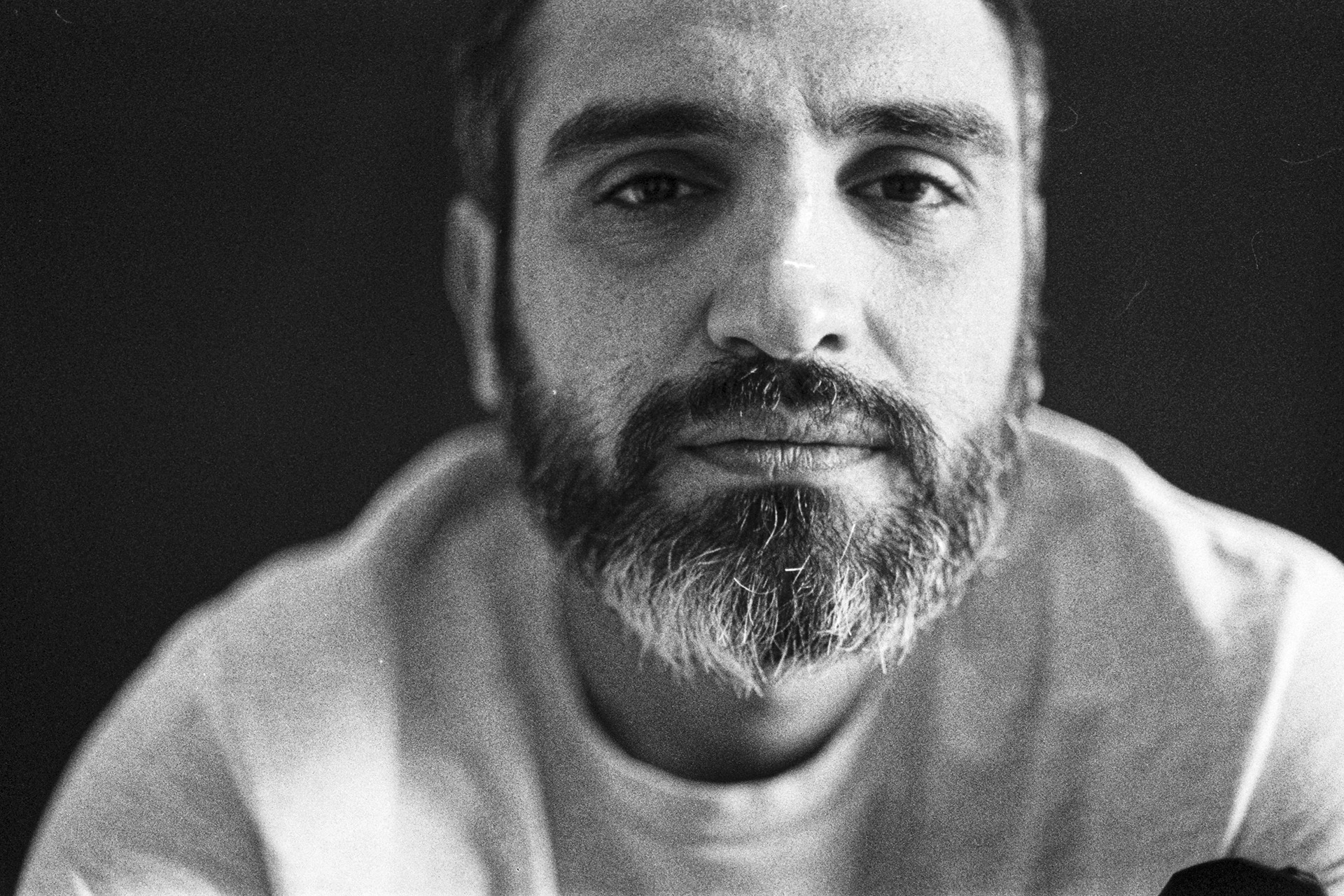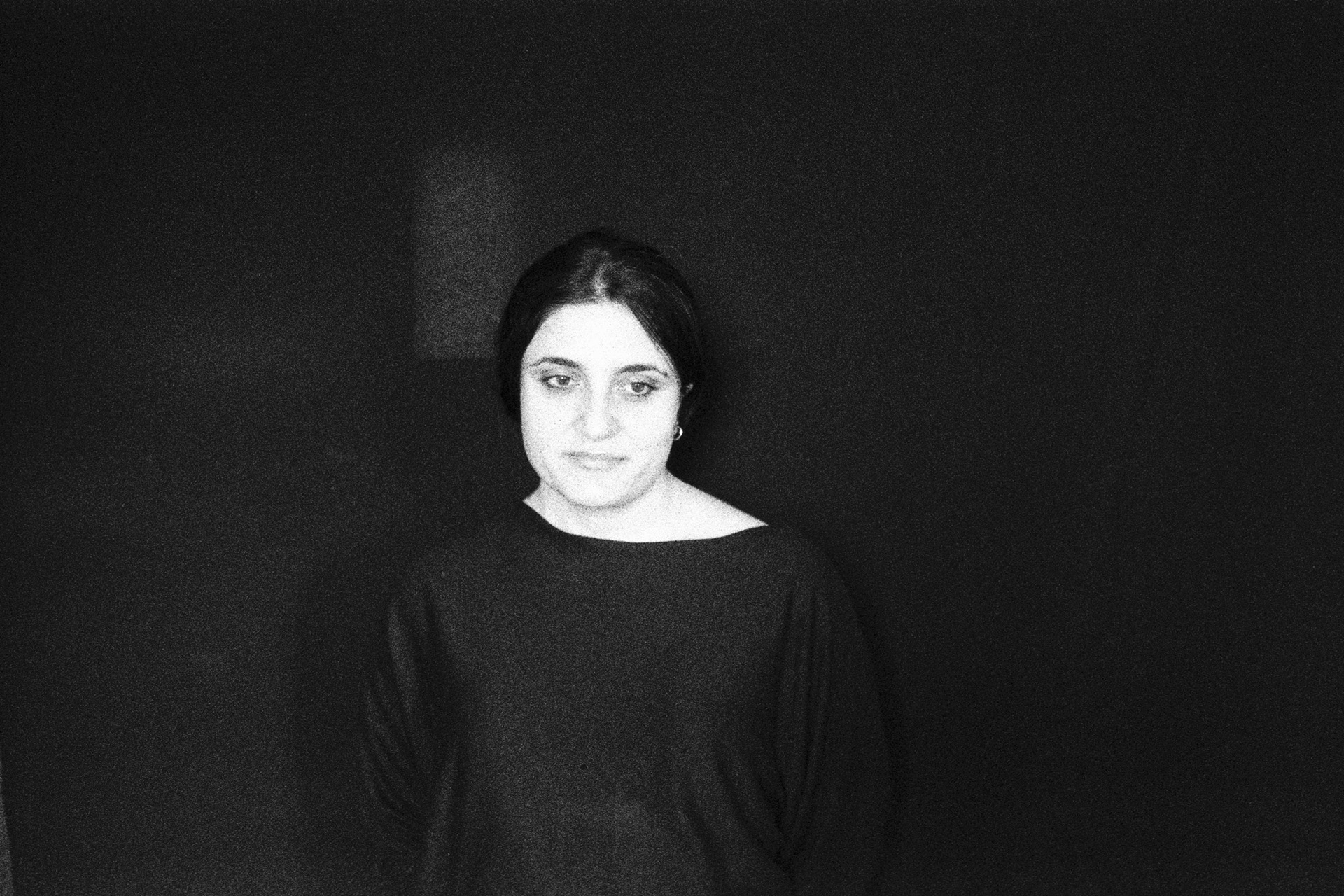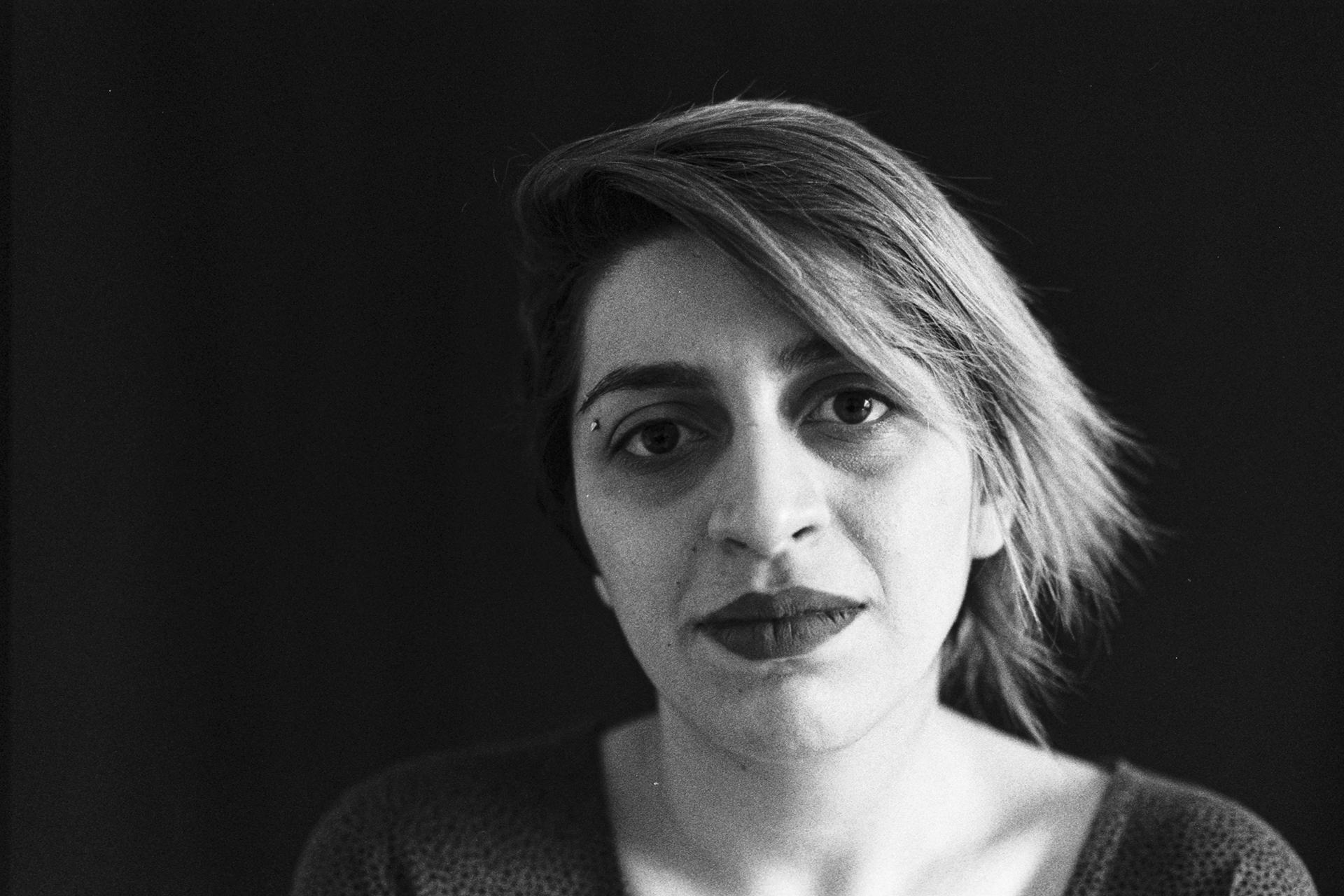War was always likely to occur, but I couldn’t have imagined such an outcome…
You take your belongings and leave the house, and so it begins… Psychologically, you start to accept that you are going to war, and it is very likely you won’t come back. This is the first barrier, an inner process, which… This was the fourth war. The one in the 1990s was when I was a kid, but it was different then. I was going to my mom; it didn’t matter whether or not it was war. It was cool, because my mom was there then.
… It becomes a regular thing, as if it is the way it should be; you get used to living under those bombings, siren sounds, whatever… Say, when living in the city, you don’t think you are going to be crashed by a car today, do you? Or that the cable of the elevator will break and you will die, you don’t think of that, do you? You simply accept the reality you live in; you choose to either stay there or not, and how long to stay…
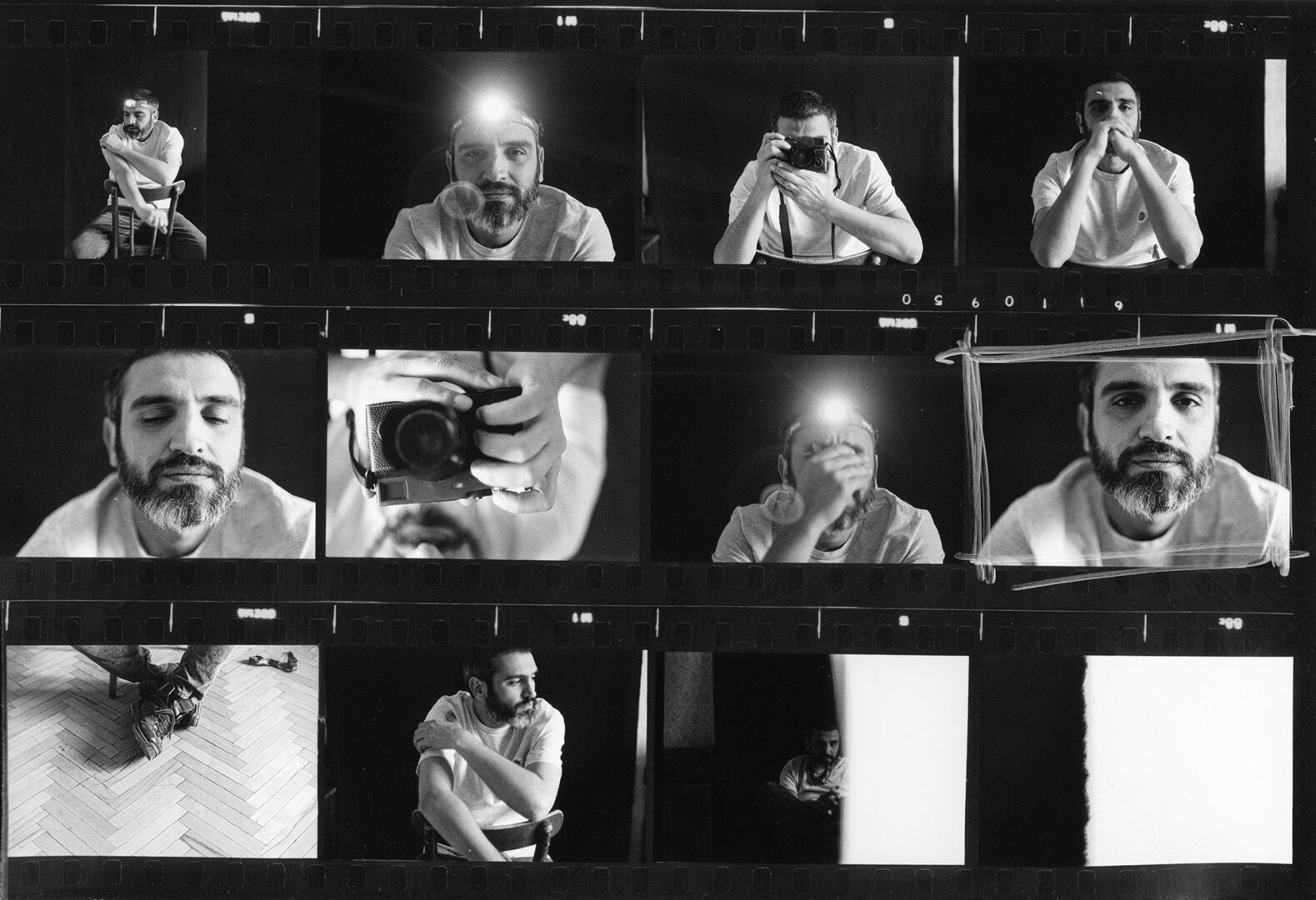
The man is always in first place, then the photo, created by itself. That is, if the photo may harm a person, then why do you take it? As for this, I have a very strict inner censorship, but the question is that very often inner and outer censorship do not match.
… We were not allowed to shoot anything: no man in a military uniform, no weaponry and equipment, no injured, no cemetery, and no deceased… We were not allowed to go to the border…
It was weird. Everybody, from a kindergarten guard to a serviceman, would awkwardly say, “Not allowed, period…” I asked why…? It’s not that my photos would appear on Aleiv’s desk. We sent the photos to the Government, and they would filter the images thoroughly, then those photos were reviewed by MID (Russian acronym for the Ministry for the Foreign Affairs) and the army, and whoever else… Only after that, the photos might or might not be published.
From a certain moment, the photographer had turned into an enemy, because there was a stereotype among people that whatever we shot, would be hit by the enemy the next moment… And what if we want to present evidence tomorrow? How are we going to do that? Are we going to tell…? We have been telling the world for 100 years that we were slaughtered… Who cares…? Alright, then we need at least a photo that will “tell” the truth, show that we had so many victims and injured…
… So, finally by force of persuasion we entered the hospital, but only for five minutes (I wonder if you can shoot for five minutes, then why can’t you shoot for fifteen…?) We managed to shoot a few things… The photo of the injured child was taken there.
…When the Azeris reported that we had killed (or injured) a child, our side was frantically searching for a photo of an injured child… It’s good there was the photo and it went viral via Tankian and others… (of course without mentioning the photographer’s name…This is yet another issue).
To cut it short, we’ve documented at best 10-20% of what happened. The photos gave the impression that we had no soldiers, no wounded and no victims, that the “holy spirit” was fighting…
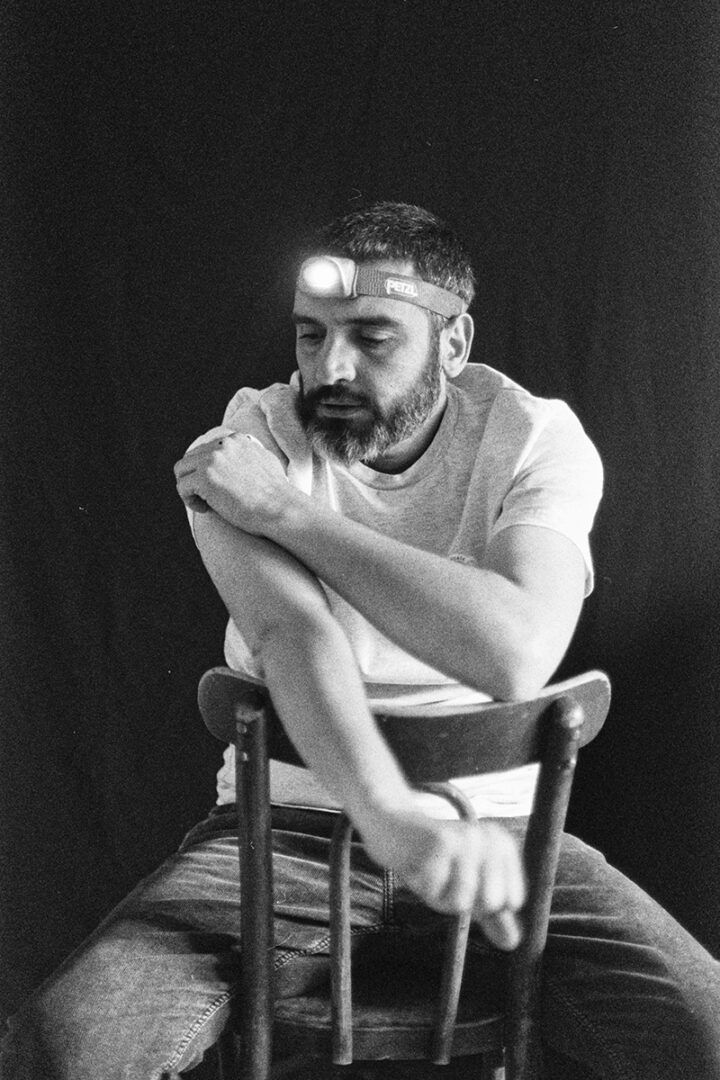
I miss… favorite places, friends… the mood for feeling cool is lost.
The evacuation day is something not to be forgiven. It was hard to go through that all, and it’s hard to live with it now… There were two versions circulating that day, on November 7th. On the one hand, they said that the Azeris were already entering Stepanakert. On the other hand, there were rumors that an important operation was to take place in Shushi, that the Russians were there and had closed the air, and we were going to make it hot for the Azeris and drive them back to the Araxes… Things like that ․․․
The whole city was evacuated… Gharabagh looked like the Deir el-Zor desert.
…Can you imagine we were armed and left Stepanakert (we carried arms in the last ten days. They said the Azeris had reached Stepanakert, and we had to go wherever we could. And our house was away from the city, on the way to Krasni)…? In a word, I had a weapon that day, but we fled. You know what I’m sayin’…? Many people fled Stepanakert, even though they were armed.
One of the guys said, if so many people didn’t do anything, just drove the way up to Shushi, the Azeris would simply flee. The convoy was that large․․․ But․․․ In short, we fled being armed… We ran like scared rabbits…
What did the war take away or give to me? I experienced all that stuff in 2016, during the April War. This time it was different. No matter how much I was inside it this time, it was as if I was outside at the same time. In other words, as if I were between two parallel lives: one was inside me and it hurt, the other was the observer․․․
Do you know how I felt? There were moments during the day that I would say I didn’t feel like shooting. I would wake up in the morning and say, “I am not taking pictures today.” It was as if I took a day off from all of that. In the meantime, I would do other stuff, not only taking photos… I was moving around, delivering relief, and sending stuff by the ambulance car from Yerevan to Shushi and Stepankert every two or three days. I would stand near the basements and ask, “Hey folks? Is anybody there? What do you need?”… There were boxes of food and other things, from a sanitary pad to․․․ I would tell the guys what was needed, and they would send everything packed…
…The war took away some people and granted some.
In 2016, I experienced everything. First I felt annihilation, then I started to gradually pull myself together. I mean, most of the transformations occurred to me in 2016, which somehow helped me be more self-possessed and peaceful during the next events. I already knew myself in that situation, before that I couldn’t identify myself at war.
This is all true except for the evacuation day. It opened up a new layer, which I couldn’t put up with…
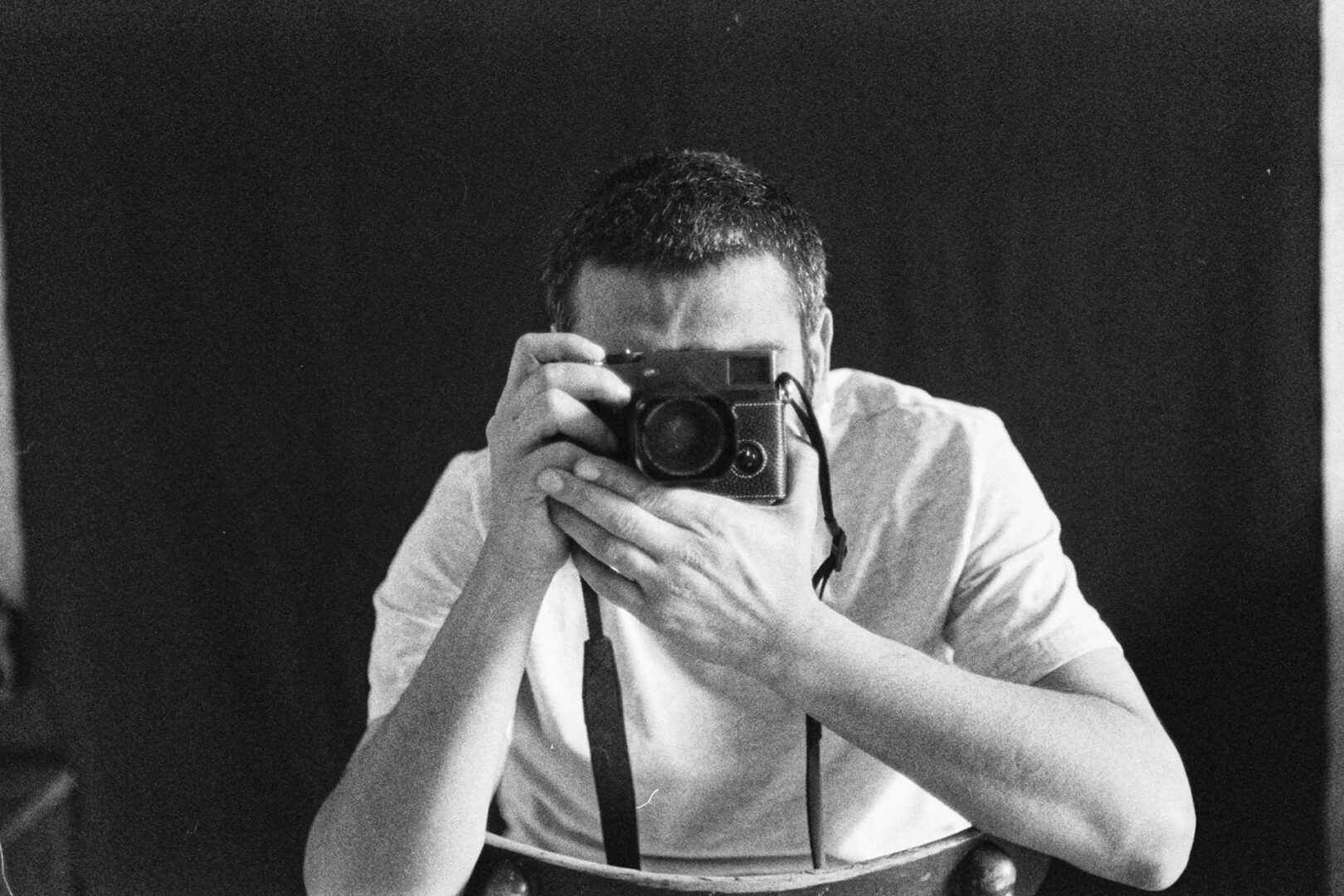
When people call me a war photographer, I tell them there is no such thing. My country is at war, and I simply capture that… All right, I served in the army, I served in reconnaissance, I was a sergeant in a training regiment, but it was 22 years ago; now I’ve become flabby… It was after the 2016 war that I realized our soldiers should learn to perform first aid, because you don’t know what will happen, whose life will depend on you…
I have learnt many lessons from war, but it’s not that I can preach morality to someone… I’ll tell you a simple thing, I didn’t have scissors with me, while our Brazilian war reporter Gabriel wore a helmet and an armour vest with big scissors stuck in it, so that he could use it in case if… He came to work, while we went to war together with our housemates… That was the difference.
That is why I cannot deem myself a war photographer; I am simply a photographer who appears at the hotspots…
One must always be ready… And it’s very important that being ready is not capitalised on hatred… I don’t know… For example, in spring, when you keep a raincoat in your car, you don’t hate Zeus, God or whoever, do you? You simply know that it’s spring, it may rain, it’s good to have something to protect from rain… So you live happily.
…One must always be ready… And it’s very important that being ready is not capitalised on hatred… I don’t know… For example, in spring, when you keep a raincoat in your car, you don’t hate Zeus, God or whoever, do you? You simply know that it’s spring, it may rain, it’s good to have something to protect from rain… So you live happily.
… No, no one should die, or be hit by a car, or send canned goods… You want canned food, make it. You want Aliev to respect you, make him do so…
We should work hard on ourselves, instead of counting on outside forces or working for the outside world… Well, we can do so as well, if it helps us be strong from inside. But we cannot make it if we just sit with our legs crossed, boast, drink toasts, and expect that the whole world would change its direction towards what is convenient for us…


